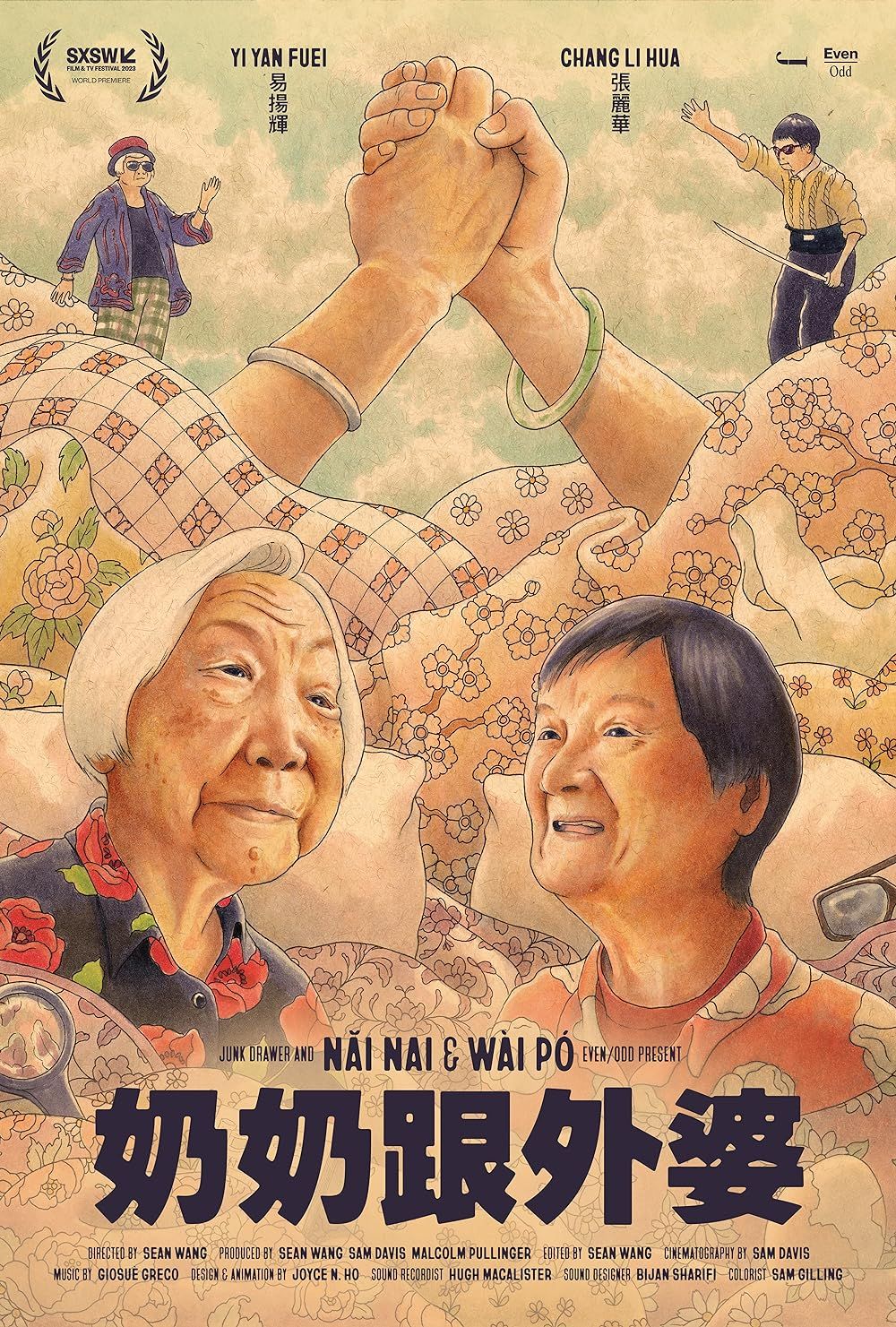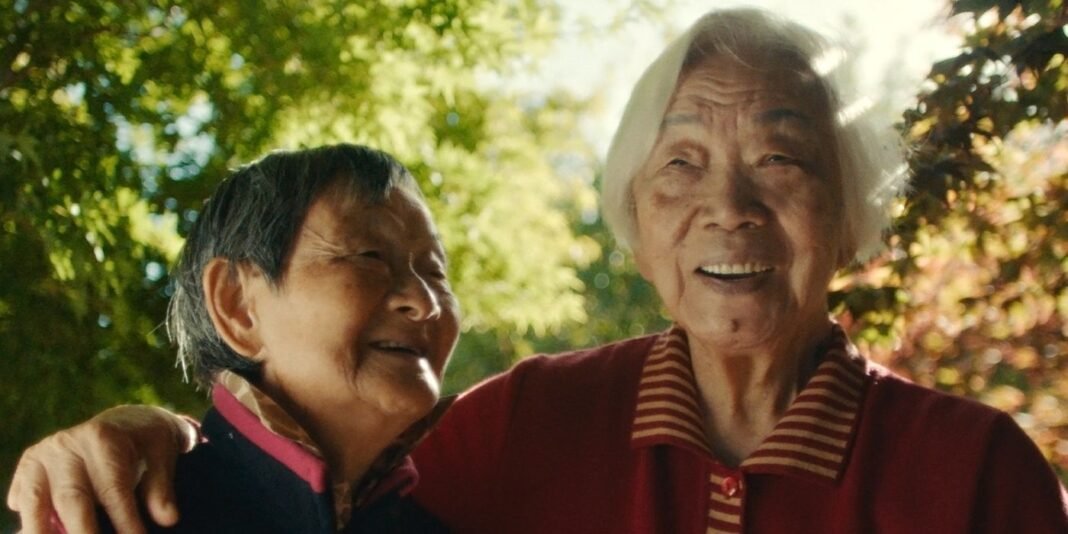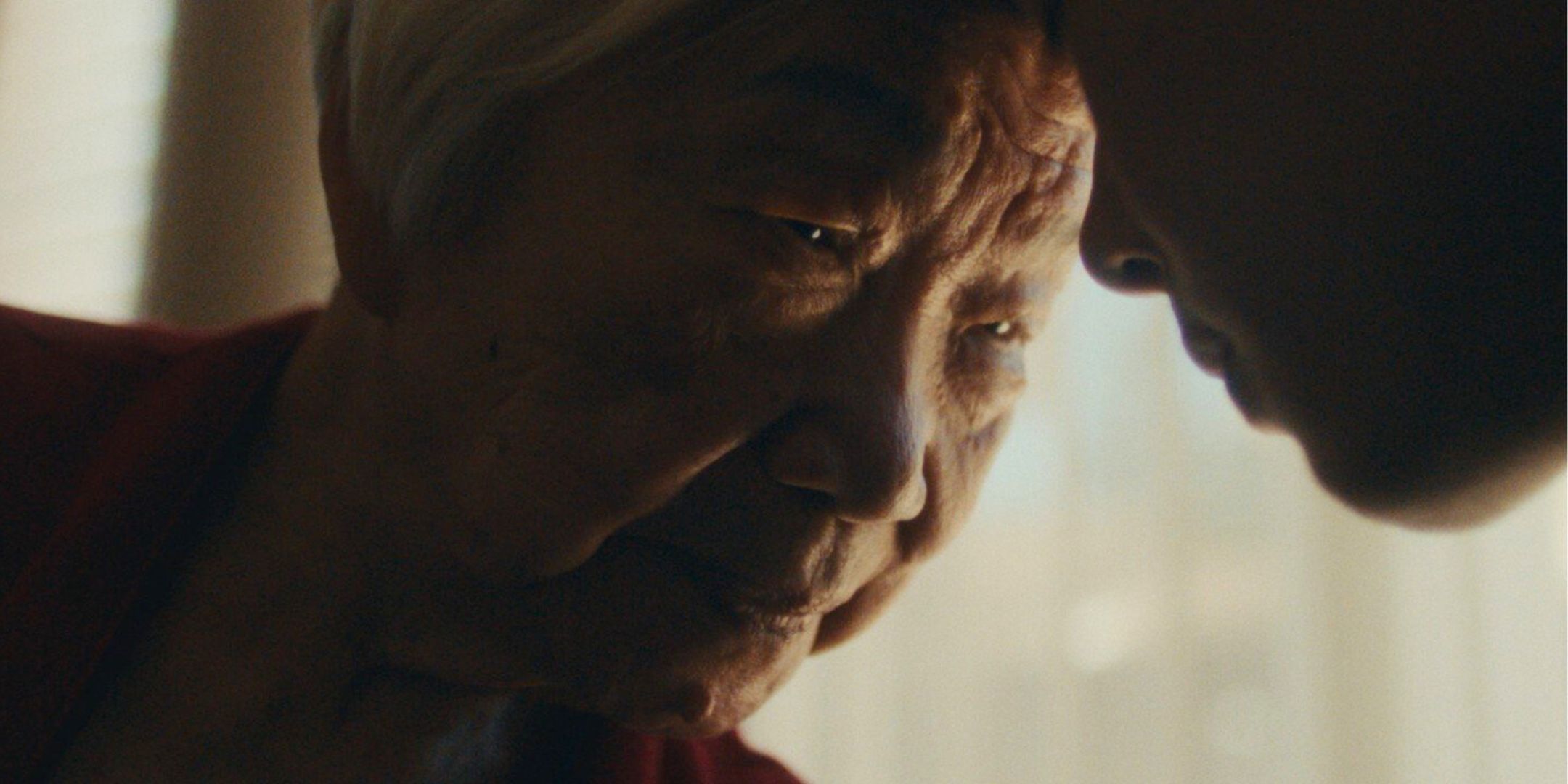The Big Picture
- Director Sean Wang’s short documentary
Nǎi Nai & Wài Pó
pays tribute to his grandmothers, bringing the two generations closer together. - The film addresses anti-Asian hate and showcases the joy and humanity of the elderly, receiving an Oscar nomination.
-
Nǎi Nai & Wài Pó
emphasizes the importance of connecting with and respecting our grandparents, highlighting their resilience and impact.
Applauded for his debut feature Dìdi at the 2024 Sundance Film Festival, director Sean Wang captures the nostalgia and confusion of adolescence during the early stages of social media. But in 2023, Wang directed his focus towards the other fringes of life, creating a heartfelt short documentary on his grandmothers that was nominated for an Oscar. Nǎi Nai & Wài Pó is a poignant yet hilarious tribute to Wang’s grandmothers, that also brought the two generations closer together. Yi Yan Fuei is Wang’s nǎi nai (paternal grandmother) who lives with Chang Li Hua, Wang’s wài pó (maternal grandmother). With a sisterly bond, the two reminisce about the trials and tribulations that persisted throughout their war-torn childhood, while also adopting an optimistic and frivolous outlook while in this stage of their lives. Wang roots out the sparkle and sincerity of a simple and grounded lifestyle, all while paying respect to his elders that paved the way for him.

Nǎi Nai & Wài Pó
A personal love letter from director Sean Wang to his Nai Nai and Wài Pó, a grandma super team that dances, stretches, and farts their sorrows away.
- Run Time
- 17 minutes
- Director
- Sean Wang
- Release Date
- February 9, 2024
Sean Wang Created a Memento of His Grandparents
Nǎi Nai & Wài Pó was shot in 2021, when Wang was living with his grandmothers, and was hit with inspiration. During an interview with The Hollywood Reporter, he captures a sentiment most of us can generally agree with, talking about the intergenerational divide that usually exists between grandparents and grandchildren. “I think the infrastructure of filmmaking and bringing them into my world as a filmmaker and getting to collaborate with them kind of forces me to close that gap between grandson and grandmother and bring us closer together.” His experience connecting with his grandparents is lovingly reflected in the 17-minute documentary, highlighting a tender joy and whimsy that arises in our grandparents’ eyes whenever their grandchildren come to visit. Even his more self-proclaimed “selfish” intentions to create a “memento of them… wanting to capture this special moment” is a testament to how much love was poured into the making of the grainy, homemade-esque film and thus how much joy radiated out of it that we are allowed to bask in.
However, the short film was also a direct response to the volatile anti-Asian hate that had increased during the pandemic, especially as the elderly population was experiencing a heightened amount of violence. In 2020, the Asian-American population experienced a rapidly increasing number of hate crimes, from verbal harassment to physical altercations, making many of them too fearful to “leave the house.” With more vulnerable members of the community particularly becoming targets of this, Wang had also been inspired to counteract it by portraying how relatable and wonderful these humans really were. “It was that juxtaposition of seeing people like them be victims of these violent hate crimes and then hanging out with them and feeling so much joy and that thought of, ‘How can anybody punch someone like them in the face?’” Wang incredulously comments during the same THR interview. It is a notion that absolutely rings true, as the same smile lights up our faces whenever we see nǎi nai and wài pó mischievously jumping into their innocent shenanigans, from flicking cash off staircase banisters to accusing each other of stinking up the bed.
‘Nǎi Nai & Wài Pó’ Earned Sean Wang an Oscar Nomination
Nǎi nai and wài pó both also had endearing reactions to the Oscar nomination, strutting along the red carpet proud of their grandson and themselves for making an impact. As they tell THR, the close friends were initially horrified at the thought of being the subject of Wang’s documentary, claiming “We’re so ugly, don’t film us” and thinking he was joking. Though they first believed they were not “young and pretty” enough to become “movie stars,” finding out the film was about their everyday lives warmed them up to the “simply impossible” idea. The notion of being able to do this at their age speaks to the overall themes of finding joy and embracing new possibilities even at a time when society has deemed it impossible to do so. Grateful for the experience, wài pó perfectly expresses this Cinderella moment in a heart-warming quote when talking to NPR: “it feels like old grandmas are now turning into princesses.”
They also talk about their experiences with the audience’s reception of the film, which was often very teary. Wài pó recounts a time when someone had run up to her at Disneyland and said, “I want to take a picture with you two. I watched this movie and cried from beginning to end because my own grandmother passed away a month ago.” For those who have lost their grandparents, these 17 minutes of laughter, solemnness, and emotion become a beacon of bittersweet hope that we gave our grandparents at least a fraction of that joy while they were here. From the upbeat and lilting soundtrack to the delicate still frames, each beat of the short documentary packs a punch of nostalgia. It elicits a sort of ethereal love that is unique to the grandparent-grandchild bond, one that nǎi nai and wài pó flawlessly convey in their candid yet meaningful presentation.
‘Nǎi Nai & Wài Pó’ Reminds Us To Connect With Our Grandparents
The short itself has a twofold impact, becoming memorable for both younger and older audiences. From a younger generation’s perspective, it reminds us to connect with our own grandparents. To THR, Wang talks about how “a lot of people have this moment where you start seeing your parents and grandparents as more than just this label. They’re complex, and they have histories.” By “wanting to show everybody just how human and three-dimensional and youthful and fun and deep [his] grandmothers are” (via NPR), Wang delivers a piece that could potentially become that coming-of-age moment where adolescents realize their family members are humans too. Filming them in an environment they feel comfortable in and generally only interacting with each other, Nǎi Nai & Wài Pó is like behind-the-scenes footage of when you leave your grandparents’ house. The whimsical aspect accentuates their capacity for relatable joy, while the more serious tones remind us to respect the path they have paved for us.
Both nǎi nai and wài pó recount their childhoods that were riddled with poverty and the overbearing dread of war. As images of them growing up, creating a family, and finding their way to America flit across the screen, there is a sense of awe for the strength and grit they had to have to survive, simply to ensure that their children wouldn’t be faced with similar devastating circumstances. While this respect for our grandparents’ history applies to most people, Nǎi Nai & Wài Pó particularly hits home for second-generation immigrants, as our newfound opportunities are largely due to our grandparents’ ability to flee war-torn countries. As such, the documentary also holds us accountable for this gratitude, reminding us to find even the smallest ways to connect with our elders, just as Wang did through filmmaking.
‘Nǎi Nai & Wài Pó’ Gives Hope to Older Generations
On the other hand, nǎi nai and wài pó also hoped that the documentary would inspire people of a similar age to fill their lives with frivolity and love. “I hope all the older generation people in the world see this movie and just see even in our twilight years, our later years of life, that we can still find joy,” wài pó says to NPR. Among the more bleak reminders of finality and death are the two soul mates finding new ways to revitalize their daily lives. From organizing dance parties to accidentally chugging down too much whiskey to brandishing swords and sleek sunglasses, the pair gives us a more reinvigorated perspective of what life can look like at this point. The film becomes a well-worn celebration of life, in all its simplicity, magic and tragedy. Shot in beautifully delicate frames and paired with an ever-shifting tone, Nǎi Nai & Wài Pó is an indulgently touching short that wraps itself around our emotions for its entire ephemeral runtime, perfectly encapsulated by nǎi nai’s gem of wisdom. “The days we spend feeling pain and the days we spend feeling joy are the same days spent. So I’m going to choose joy.”
Nǎi Nai & Wài Pó is available to stream now on Disney+ in the U.S.
WATCH ON DISNEY+



